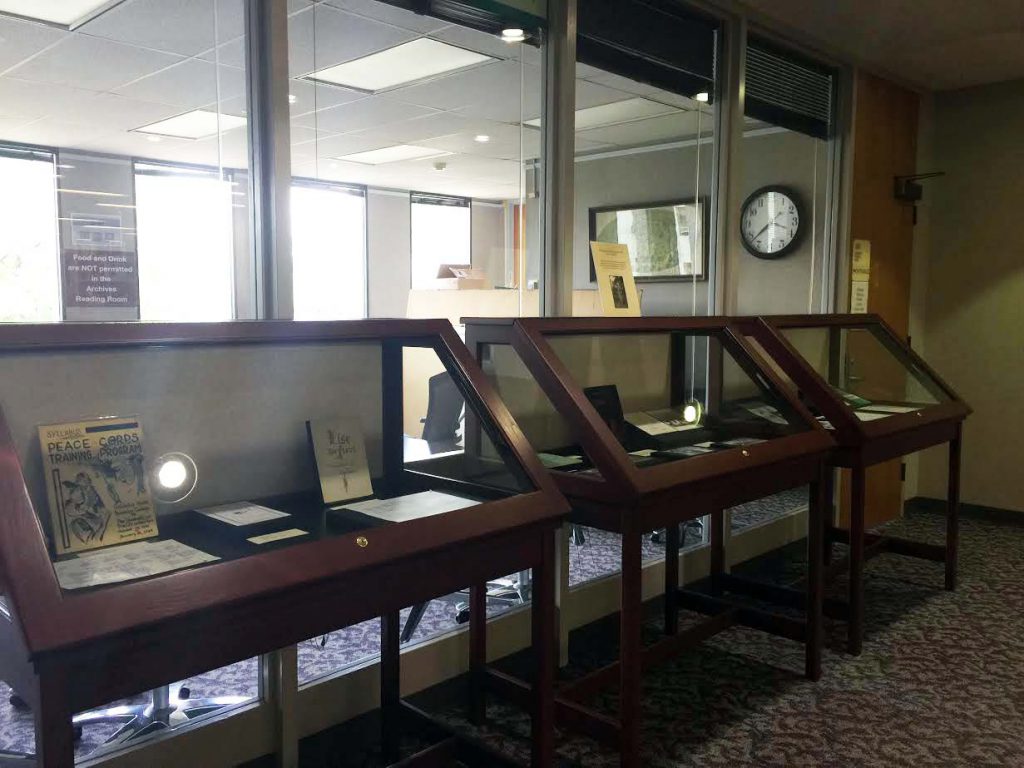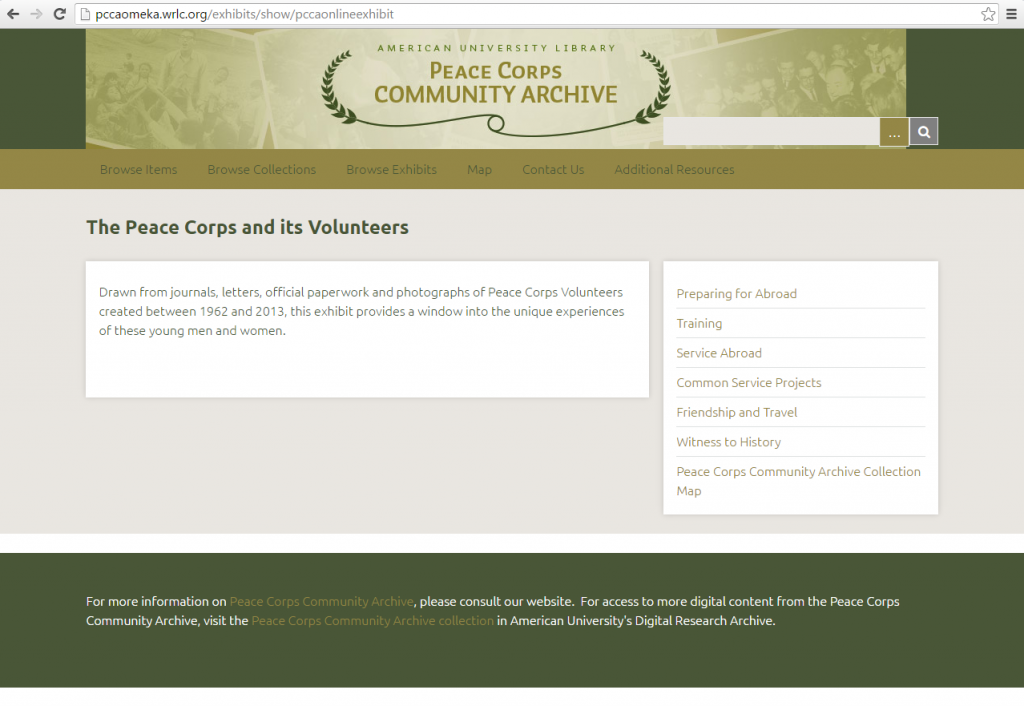In honor of Peace Corps Week, we are pleased to have Jesse Bailey, Historian of RPCV/W, as a Guest Blogger. We invited him to tell us about his history project and the panel discussion held at American University on February 23rd.

From right to left: Roger Landrum, Jerry Lutes, Debby Prigal, Lisa Martin, Jesse Bailey
Back in 2010 the board of the Returned Peace Corps Volunteers of Washington DC (RPCV/W), started to organize for the 50th anniversary of Peace Corps, which happened in September of 2011. All this organizing, and recapturing the history of Peace Corps got the board wondering about the history of our own organization. The board has recently, mostly consisted of people in their late 20’s or early 30’s, with average service of 2-4 years. This has led to a lack of historical knowledge of what the group had done in the past. That is how the creation of Historian was born, and how I became appointed to the board to look into our own history.
Over the past year and a half, I have been tracking down and interviewing former board members to learn what we have done as a group. As it turns out, we have done a lot, especially in the first several years of our existence. RPCV/W was formed in 1978, and back then there were very few country or regional groups in existence. Because our location in the nation’s capital and Peace Corps Headquarters, we have had a long history of working with Peace Corps and the National Peace Corps Association to celebrate major Peace Corps milestones. It was RPCV/W that ended up organizing the first Peace Corps reunion, the 20th in 1981. Five years later, we organized the major 25th Anniversary, which was much bigger than the 20th. It was in the wake of the 25th that a large number of country and regional groups were first formed.
After interviewing several board members, and learning about some of these events, I realized that it was a story that should be told to others. I felt that once I had interviewed enough former board members, that I should have a history panel event, where they could tell the story in their own words. After interviewing several more board members, I finally felt that I had a good understanding of our 36 year history, and that I could now invite former board members who could tell the history of the first 25 years. Since American University has become the official archive of NPCA and a number of country groups, such as Friends of Colombia, it seemed like a natural place to hold the history panel.
I had previously interviewed three of the panelists and had heard some interesting stories, which I prompted them to retell for the benefit of the audience. The panel proved to be a very nice forum to distil all my interviews in to manageable hour, for those who wished to hear it. After the panel, we opened it up to Q and A, and it turned out that there were a few other former board members who also had some information to add, as well as a lively discussion about where RPCV/W is today. Overall, I think it was a successful event that enlightened some of the audience including current board members on our storied history as an organization. It was good to start this dialogue in an open way and there maybe another panel some-time in the future as there are many more stories to tell. It was great to see a sample of the objects the Library currently has, and to hear from Susan McElrath what the collection contains now and what they are looking to add. I will look forward to seeing their collection grow, as they solicit and receive materials from individuals, country groups and regional groups. Peace Corps is now on its’ 6th decade and has its’ own lengthy storied past. Now that the Kennedy Library is only accepting materials from the first few years of Peace Corps history, it is great that there is now a home for all things Peace Corps. It is an honor that our group has been able to play a role in the history of Peace Corps.








